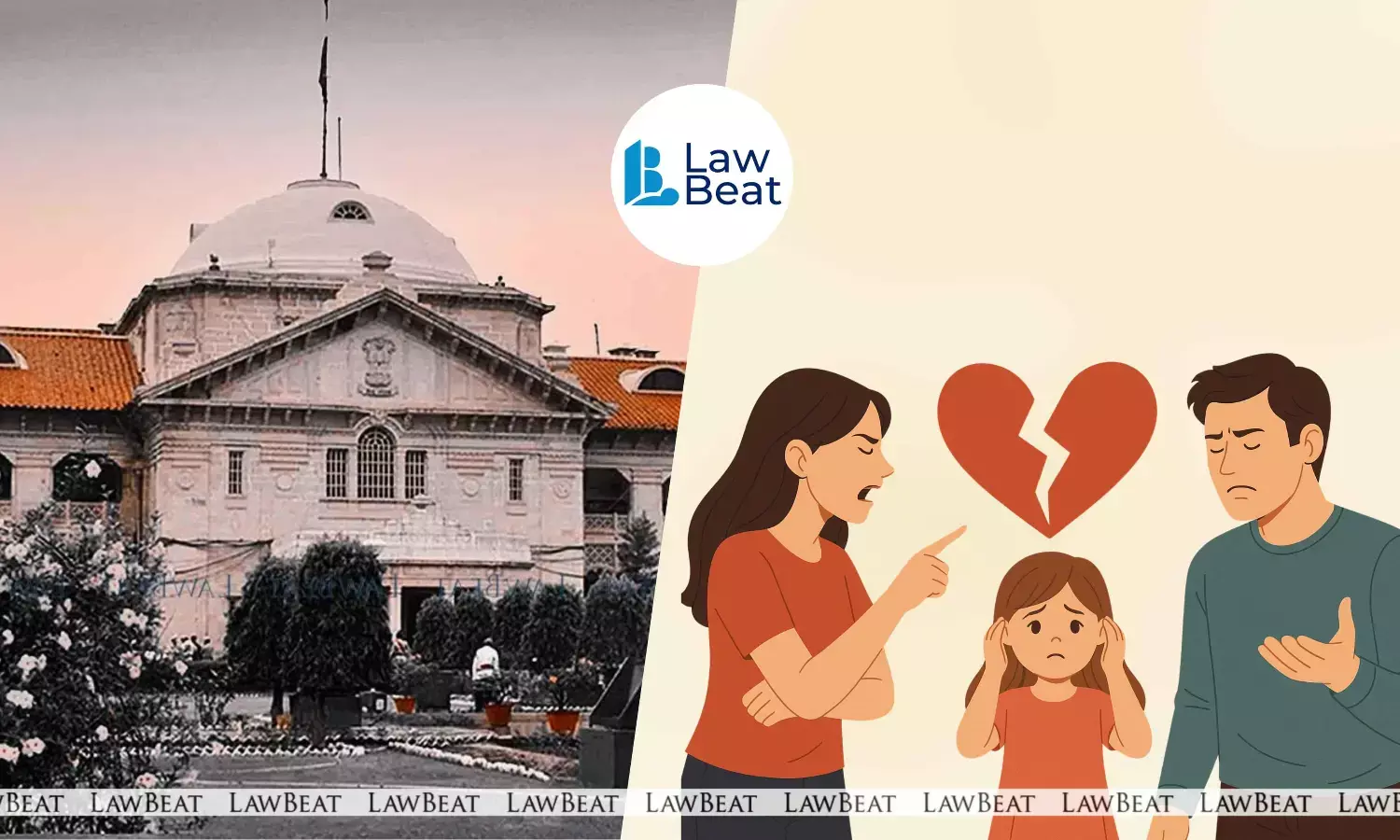‘Father as Natural Guardian No Longer Tenable’: Allahabad High Court Flags Patriarchal Bias in Custody Laws

The Allahabad High Court recently handed over the custody of a 12-year-old girl to her mother, observing that “patriarchal bias” in child custody laws can no longer dictate outcomes in the 21st century.
The bench of Justice Vinod Diwakar, while allowing a petition filed under Section 482 CrPC, strongly criticised both the conduct of the father and the outdated judicial mindset that prioritised paternal custody over the child’s well-being.
The judgment came in a dispute between the child's mother and father, a senior railway officer, who had allegedly manipulated events to unlawfully retain her custody. Court noted that the father had “connived and schemed” to separate the child from her mother under the guise of shifting residences, and then fabricated narratives to justify continued custody.
The legal battle began after the child's mother filed a complaint under the Protection of Women from Domestic Violence Act, 2005, alleging harassment by her husband. Alongside the complaint, she sought interim custody of their minor daughter. The trial court and later the appellate court denied her custody, citing the child’s expressed preference to stay with her father. Aggrieved, the mother approached the high court under Section 482 CrPC, challenging the orders and alleging deceitful conduct by the husband in separating her from the child.
While deciding the matter, the high court made significant remarks upon the prevailing guardianship laws. It termed the Guardians and Wards Act, 1890 a colonial-era law that reflected deeply patriarchal assumptions, and said Section 6 of the Hindu Minority and Guardianship Act—which lists the father as the natural guardian before the mother—was outdated and discriminatory.
“The judicial interpretation has commendably filled the legislative void,” the court said, “However, true progress demands that the legislature codify these evolving norms to ensure a consistent and gender-neutral approach across the country.”
It observed that while earlier laws may have placed the father above the mother in matters of guardianship, today’s evolving legal and social understanding—particularly for girl children—requires a more empathetic, child-centred approach. Preferential custodial rights of the mother must be recognised, especially in the case of a female child approaching puberty, it stated.
The mother, currently working as an Assistant Professor in a hospital administration department, had argued that her daughter was entering puberty and needed the physical, emotional and psychological support that only a mother could provide. The high court agreed, stating that biological experience and emotional attunement are critical during such formative years.
Court noted that the child’s paternal household lacked a capable female presence—her grandmother being a stage-3 cancer survivor and grandfather suffering multiple health conditions. Daily chores were handled by male servants. Such a household cannot substitute the natural maternal role, the judge remarked.
The high court also rejected the father’s claim that the child voluntarily wished to stay with him, stating that the trial court had improperly burdened the child to choose between her parents. “The learned judge failed to appreciate that the primary objective was to ascertain the best interests of the child, rather than to determine fault or adjudicate a contest of blame between parents whose matrimonial relationship had already suffered significant personal hardships leading to their separation,” the court added.
In its direction, the court ordered the father to hand over custody within three days and instructed the Lucknow Child Welfare Committee and police officials to ensure compliance, if required. It also warned that the father’s official position may allow him to misuse influence and thus should be monitored until the order is executed.
Case Title: Saumya Sajiv Kumar Sharma And Another vs. State of U.P. and Another
Download judgment here
